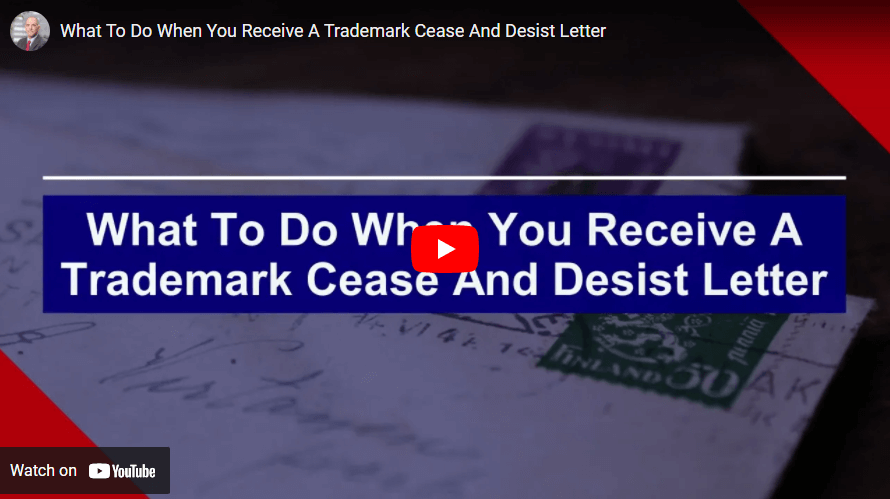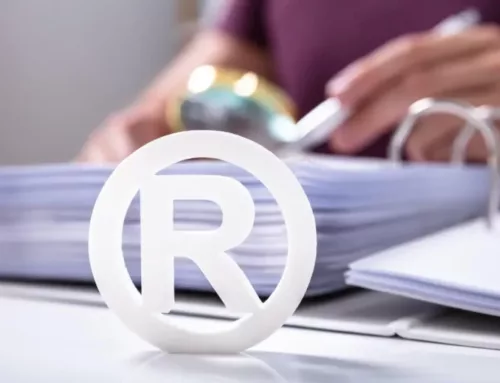Seeking trademark registration is a way to legally protect the logo or brand name of a company or business venture. When a trademark registration is obtained through the United States Patent and Trademark Office (USPTO), there are certain protections afforded to the registrant. Among these protections is the exclusive right to use the trademarked property. As such, if a trademark registrant finds another individual or business infringing on their legal rights to exclusivity, it is well within their rights to seek recourse. Oftentimes, this recourse can take the form of a trademark cease and desist letter. For more information regarding trademark cease and desist letters, or trademarks broadly, consider calling War IP Law, PLLC at (202) 800-3754 today. Our experienced team of attorneys are available to address any concerns and review your legal options.
What Is a Trademark Cease and Desist Letter?
Being on the receiving end of a cease and desist letter can be quite intimidating, and can leave a person unsure of their options moving forward. They may wonder how to respond to the letter or how to move forward with their own business venture without being subject to a lawsuit. Fortunately, there are options available regarding how to respond to a trademark cease and desist letter.
Legalities of a Trademark Cease and Desist Letter
A trademark cease and desist letter is official correspondence, either in the form of a physical letter or email, regarding the alleged unlawful use of another’s trademark. Cease and desist letters provide details regarding the trademark in question and demand that any use of the mark is stopped. A trademark owner is responsible for enforcing their rights. Therefore infringement, even unintentionally, is taken quite seriously.
Common Components of a Trademark Cease and Desist Letter
While trademark cease and desist letters vary greatly in their language and stipulations, there are some components that can be expected:
- The trademark owner’s name and basic information
- The trademark and its corresponding registration number
- Pertinent information regarding the unlawful use of the trademark
- Evidence concerning the likeness and similarity of their trademark to that of the infringer
- A request for the infringer to halt activity using the trademark, typically within a specified amount of time
- Subsequent legal action that will be taken if the infringer refuses to halt their unlawful use of the trademark
It is important to understand that receiving a trademark cease and desist letter does not mean that the infringer is being sued. For a lawsuit to be present, there must be specific documentation to which an infringer must formally respond. Rather, cease and desist letters serve as a possible warning of future action, assuming the infringer does not comply.
Can I Receive A Trademark Cease and Desist Letter Regarding An Unregistered Trademark?
A common misconception is that a trademark must be explicitly registered with the USPTO in order for legal rights to exist. While registration solidifies an owner’s legal protections, federal registration is not required to establish trademark rights. Unregistered trademarks are governed by common law rights, meaning a business may use a mark for particular goods and services without applying for trademark protection and still be protected. These common law rights can be used to challenge an infringer in court.
This highlights the importance of thoroughly researching any potential brand name or logo before using it in commerce. Even unregistered marks are protected and using another’s Intellectual Property, even the mere likeness of the mark, could result in a trademark cease and desist letter.
How Can I Respond To a Trademark Cease and Desist Letter?
After receiving a trademark cease and desist letter, it is natural to wonder the correct method of response. Generally speaking, there are four options to consider, including:
- Ignore: It is possible to choose not to respond to a cease and desist letter or any of the follow-up correspondence. If you elect this approach, remember that there may be potential consequences for ignoring the letter. For example, if you are found to still be infringing on trademark rights, the courts may hold that you acted recklessly or irresponsibly in your choice to ignore the cease and desist letter. In that case, the trademark owner may be entitled to enhanced damages.
- Respond: Many individuals choose to respond to trademark cease and desist letters, typically requesting further evidence or denying infringement altogether. Whichever the case, it is important to respond carefully and perform research on the date of first use, federal registration of the mark, or geographic region of use.
- Negotiate: It is possible to reach an understanding with the trademark owner, which can even take the form of a written agreement that no infringement has occurred. Otherwise, the use of the trademark could be negotiated on mutually beneficial terms.
- Lawsuit: This is an avenue for individuals who believe they have not infringed on the owner’s use of the trademark, or who have a vested interest in maintaining their use of the mark. It is possible to sue the trademark owner for a “declaratory judgement” which, if successful, legally determines that your mark does not infringe on the owner’s mark.
Each approach has certain advantages and disadvantages, and the preferred strategy will ultimately depend on the unique circumstances of the situation. Given the commercial nature of trademarks and the associated financial consequences of their use, pursuing a lawsuit may (or may not) be the ideal course of action. Consider contacting an experienced attorney War IP Law, PLLC to determine which option is right for you, and to ensure your legal rights remain protected.
How Can An Intellectual Property Attorney Help?
In some cases, a trademark owner will send a trademark cease and desist letter to intimidate or demand compensation for the use of a mark, but their claims are not substantiated by the law. It can be difficult to differentiate a valid cease and desist letter from an invalid one, hence why seeking legal counsel can be highly valuable in these cases.
For this reason, consulting an IP attorney can help you understand all of your legal options and rights under the law. Contact our legal team today at War IP Law, PLLC at (202) 800-3754 to curate a unique legal strategy for your situation and to learn more about what to do when you receive a trademark cease and desist letter.







